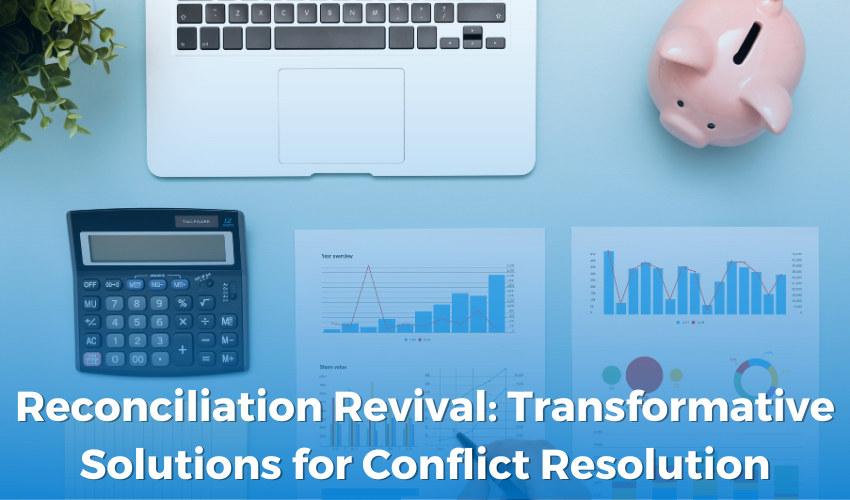

03-01-24
In the complex tapestry of human relationships, conflicts are an inevitable part of the journey. Whether they arise in personal, professional, or community settings, the ability to navigate and resolve conflicts is crucial for fostering growth, understanding, and lasting connections. In recent years, there has been a notable resurgence of interest in reconciliation services, marking a revival of transformative solutions for conflict resolution. This blog explores the evolving landscape of reconciliation, the impact of these services, and the transformative potential they hold for individuals and communities alike.
Understanding Reconciliation Services
Reconciliation services in usa encompass a range of approaches designed to facilitate communication, understanding, and resolution between conflicting parties. While conflict is a natural aspect of human interaction, the manner in which it is addressed determines the potential for growth or deterioration in relationships. Reconciliation services focus on fostering empathy, communication, and compromise, aiming to repair fractured connections and rebuild trust.
The Transformative Power of Empathy
At the heart of reconciliation lies the transformative power of empathy. The ability to understand and share the feelings of others is a cornerstone of effective conflict resolution. Reconciliation services provide a structured environment where individuals can express their emotions and perspectives while also actively listening to the experiences of others. This empathetic exchange lays the foundation for healing and understanding, paving the way for transformative solutions.
Breaking Down Barriers to Communication
Communication breakdown is a common catalyst for conflicts. Reconciliation services work towards breaking down these barriers by creating a safe space for open and honest dialogue. Skilled facilitators guide participants through a structured process that encourages active listening, respectful communication, and the expression of needs and concerns. This deliberate focus on communication not only resolves immediate issues but also equips individuals with valuable skills for navigating future conflicts.
Restoring Trust through Accountability
Trust is often eroded in the wake of conflict, and rebuilding it requires a commitment to accountability. Reconciliation services in usa provide a platform for acknowledging mistakes, taking responsibility for actions, and outlining steps towards positive change. This accountability is a crucial component of the transformative process, as it sets the stage for rebuilding trust and establishing a foundation for healthier relationships.
Community Impact of Reconciliation
The impact of reconciliation services extends beyond individual relationships to encompass broader community dynamics. In communities, conflicts can arise due to cultural, social, or economic differences. Reconciliation initiatives tailored to community settings foster a sense of unity, understanding, and shared responsibility. By addressing underlying issues and promoting inclusivity, these services contribute to the overall well-being and resilience of communities.
Embracing Diversity and Inclusion
Reconciliation services also play a pivotal role in promoting diversity and inclusion. In a world characterized by various perspectives and backgrounds, conflicts often arise due to differences in values, beliefs, or cultural practices. Reconciliation services provide a platform for acknowledging and celebrating diversity, fostering an environment where differences are embraced rather than feared. This inclusive approach not only resolves conflicts but also contributes to the creation of harmonious and culturally rich communities.
The Role of Education in Conflict Resolution:
As the interest in reconciliation services grows, education becomes a key driver in ensuring widespread understanding and adoption of transformative conflict resolution strategies. Workshops, training programs, and educational initiatives centered around reconciliation empower individuals with the knowledge and skills necessary to navigate conflicts constructively. By integrating these principles into educational curricula, society can foster a culture of empathy, communication, and reconciliation from an early age.
Conclusion
In the midst of a world often marred by discord, the resurgence of reconciliation services offers a glimmer of hope for transformative conflict resolution. By placing emphasis on empathy, communication, accountability, and community impact, reconciliation services pave the way for healing and growth. The ripple effect of these transformative solutions extends far beyond individual relationships, fostering inclusive communities and contributing to a more harmonious world. As we embark on this reconciliation revival, let us recognize the power of transformative conflict resolution in shaping a future where understanding triumphs over discord, and connections are strengthened through the shared journey of reconciliation.
Tags : Reconciliation Revival













































.jpg)
.jpg)
.jpg)
.jpg)


).jpg)














 Get A Quote
Get A Quote
Leave A Comment